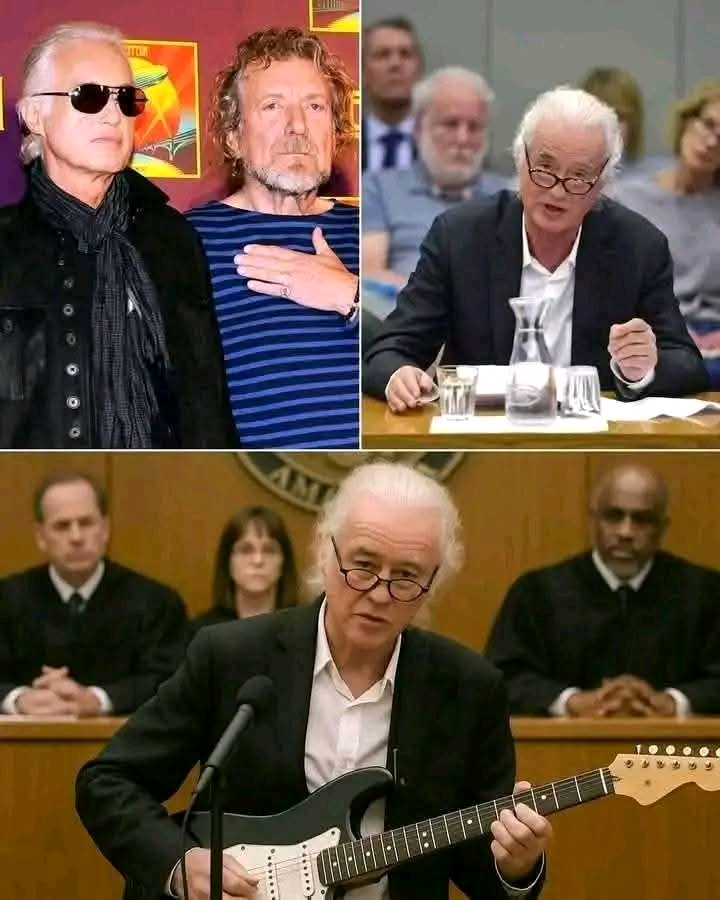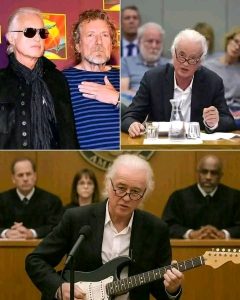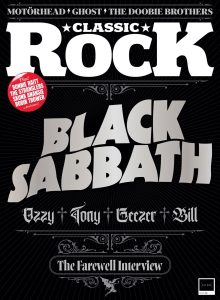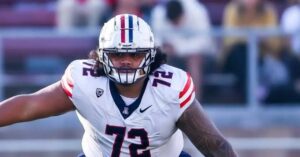
On This Day in 2016: Jimmy Page Faced Court Over “Stairway to Heaven” Lawsuit
On this day in 2016, rock legend Jimmy Page didn’t step onto a stage — he stepped into a federal courtroom in Los Angeles. The occasion? A $79 million lawsuit that put one of the most iconic songs in rock history, “Stairway to Heaven,” under a legal microscope. Gone were the guitars and Marshall stacks — in their place, a judge, jury, and a claim that threatened to tarnish Led Zeppelin’s musical legacy.
The lawsuit had been filed by Michael Skidmore, a trustee for the estate of Randy Wolfe, better known as Randy California, the late guitarist of the psychedelic rock band Spirit. At the heart of the case was the claim that the haunting opening guitar progression of “Stairway to Heaven” had been plagiarized from Spirit’s 1968 instrumental track, “Taurus.”
“Stairway to Heaven,” released in 1971 as part of Led Zeppelin’s fourth, untitled album, is not just another rock song — it’s often cited as one of the greatest of all time. Its opening acoustic riff, slowly ascending in a minor key, has been burned into the minds of generations of guitarists and fans. But Skidmore’s lawsuit alleged that Jimmy Page and Robert Plant lifted that memorable progression directly from “Taurus,” which predates Zeppelin’s song by three years.
Jimmy Page, dressed in his usual black and silver tones but without the swagger of the stage, took the witness stand. Calm and composed, he maintained that he had never heard “Taurus” before the accusations surfaced online in 2014. Page admitted to owning Spirit albums, which the plaintiff’s team used to argue familiarity. However, Page insisted he did not recall ever listening to that specific track and that he would not have drawn inspiration from it, consciously or subconsciously.

One of the key moments in the courtroom drama came when Page was asked to explain the writing process behind “Stairway to Heaven.” He described it as a natural, evolving collaboration between himself and Plant, written at Headley Grange, a remote English country house where much of Led Zeppelin IV was composed. Page even brought a guitar to court to demonstrate the structure and composition of the song.
The plaintiff’s argument leaned heavily on the similarity between the two songs’ opening measures — descending arpeggios with a similar rhythm and tone. However, Zeppelin’s defense pointed out that this kind of progression was a common musical device that had existed long before either song. Expert witnesses for the defense testified that the musical elements in question were not original enough to warrant copyright protection.
After a week of testimony, the jury reached its verdict: Led Zeppelin did not plagiarize “Taurus.” They concluded that while Page and Plant may have heard the song, the two works were not “substantially similar” under copyright law. It was a major win for the band and a moment of vindication for Page, who had long maintained the originality of his composition.
The ruling was later appealed, and in 2020, a U.S. appeals court reaffirmed the original decision, closing the case for good and solidifying “Stairway to Heaven” as Led Zeppelin’s undisturbed masterpiece.
The case sparked a broader conversation in the music industry about copyright, inspiration, and artistic ownership — especially in an age when music is easily accessible and influenced across genres and decades. For Jimmy Page, the courtroom battle was far from the stages he was used to, but on this day in 2016, he proved he could still stand tall under pressure — even without a Les P
aul in his hands.







